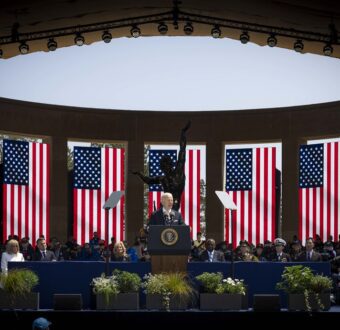China Can’t Catch a Break in Asian Public Opinion

Washington can benefit from Beijing’s soft-power failures.
By Zuri Linetsky, Research Fellow
This article appeared in Foreign Policy on June 28, 2023
China has a soft-power problem—especially among its neighbors in Asia. New data collected by my organization, the Institute for Global Affairs, demonstrates that many people in Singapore, the Philippines, and South Korea have unfavorable views of China’s soft power. While about three-quarters of people surveyed reported favorable views of U.S. soft power (a composite measure of views of the United States, its culture, its system of government, and its influence over the past five years), just over one-third said they had similarly favorable views of Chinese soft power. This is a concrete problem for Beijing, because in the Philippines and South Korea, it contributes to policy changes that conflict with China’s objectives.
While many in the U.S. foreign-policy community focus on China’s growing military power and reach, its inability to win new friends and allies though the power of example requires more focused attention. China’s soft-power deficit presents the United States with an opportunity to rebuild its own soft-power assets in Asia. Based on our data, the United States should build networks of cooperation on issues such as economic development, economic disparities between the rich and poor, political instability, and climate change.
Soft power is a country’s ability to attract. It includes ideology, values, domestic politics, technology, culture, and influence in international institutions. Put differently, it is a country’s ability to get others to want what it wants, without recourse to military force or other forms of coercion. It helps countries achieve their national security objectives by influencing allies and partners and obviates the need to forcibly change what they do. It helps reduce the threat of conflicts occurring and contributes to balancing the threat of great-power competition.
China’s efforts to build soft power are fraught. The countries in which China invests in soft-power assets are increasingly concerned about China’s global ambitions. Chinese economic, cultural, educational, and research investments are scrutinized regularly, and are received with caution. Indeed, China’s attempts to build soft power are repelling other countries more than drawing them in because China can seem like a bully.
Read more of Zuri’s article in Foreign Policy.

Written by Zuri Linetsky
Zuri is a research fellow with the Independent America project at the Institute for Global Affairs.
Read more from Zuri
This post is part of Independent America, a research project led out by IGA senior fellow Mark Hannah, which seeks to explore how US foreign policy could better be tailored to new global realities and to the preferences of American voters.









America Prepares for a Pacific War With China It Doesn’t Want